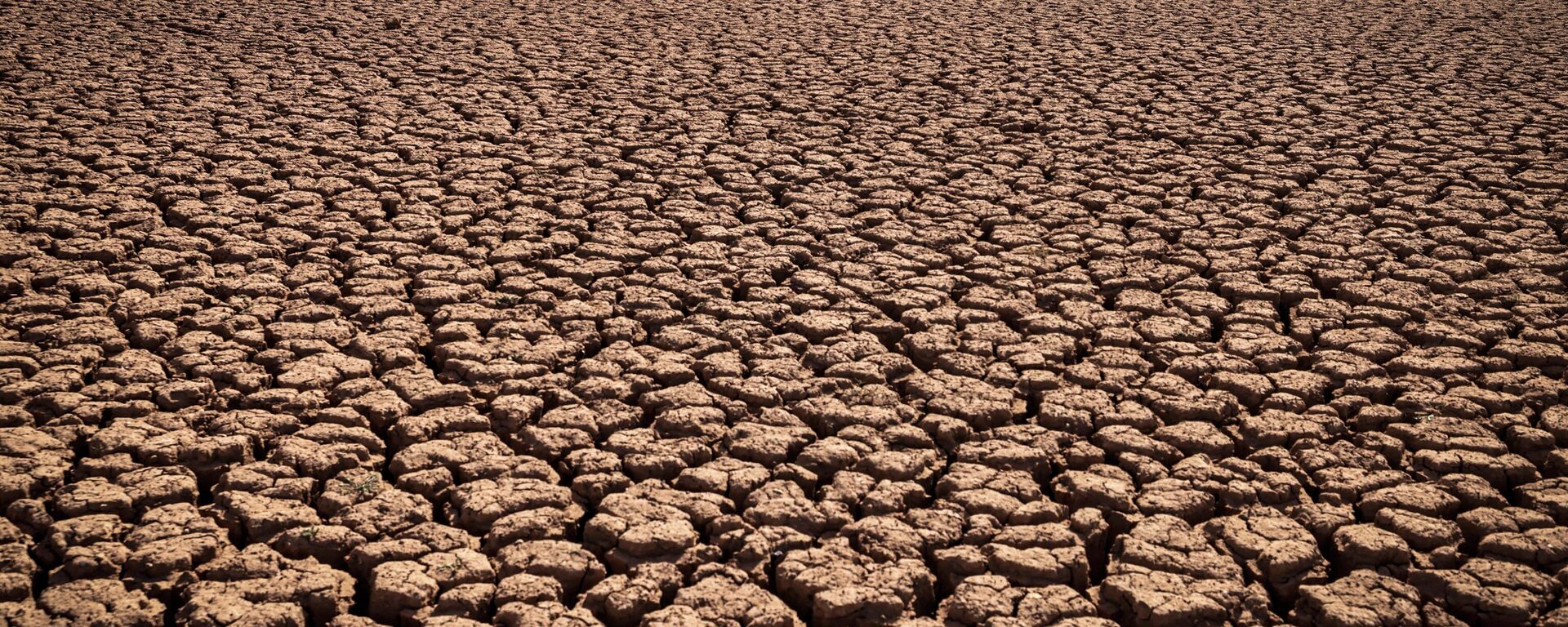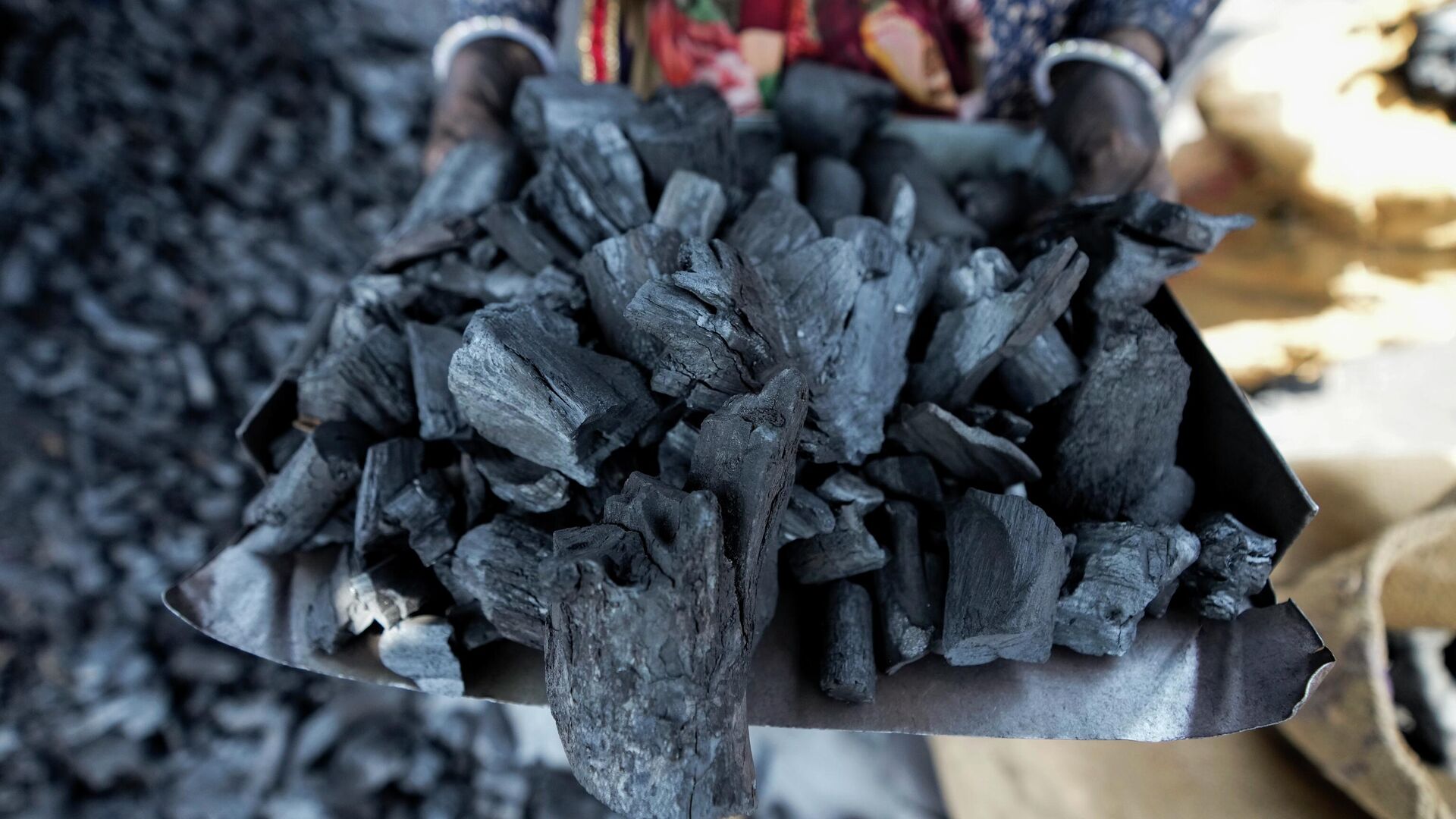https://sputnikglobe.com/20221107/india-to-raise-domestic-coal-production-if-rich-countries-dont-stabilize-energy-prices-report-1103844639.html
India to Raise Domestic Coal Production if Rich Countries Don't Stabilize Energy Prices: Report
India to Raise Domestic Coal Production if Rich Countries Don't Stabilize Energy Prices: Report
Sputnik International
Delhi has been warning rich countries that the spillover effects of the Ukraine crisis have adversely impacted the ‘Global South’. So far, India has refused to... 07.11.2022, Sputnik International
2022-11-07T08:12+0000
2022-11-07T08:12+0000
2022-11-23T13:01+0000
india
crude oil
lng
coal
cop27 in egypt
russia
climate change
https://cdn1.img.sputnikglobe.com/img/07e6/0b/07/1103846272_0:160:3073:1888_1920x0_80_0_0_7d462074de657264ae1b31572aa49f0f.jpg
India will be forced to raise its domestic coal production in order to meet its energy requirements and sustain high-momentum economic growth if the rich nations don’t chip in with efforts to bring down “artificially high” fuel prices, officials told Hindustan Times.The International Monetary Fund (IMF) and governments across the world have been forced to revise the growth forecast this year due to inflationary pressure caused by high commodity prices. India is expected to be the fastest growing major economy this year, with the IMF projecting GDP growth of 6.8 percent.The remarks by the Indian officials come against the backdrop of the beginning of the Conference of the Parties of the United Nations Framework Convention on Climate Change (UNFCCC), or COP27 Summit in Egypt.The developing countries are expected to press the advanced economies to contribute more financially to meet clean energy transition targets in order to limit the global warming to 1.5 degree Celsius by 2030. Increased reliance on conventional energy sources like coal by big emitters such as India could adversely affect the 1.5-degree target.India is the world’s third-biggest consumer of fossil fuel and imports 85 percent of its crude requirements and around 54 percent of its natural gas requirements, according to official data. In a bid to transition to cleaner energy sources, New Delhi is seeking to raise the share of natural gas in its overall energy mix to 15 percent by 2030 from 6.3 percent at present.At present, LNG has been trading at $50-60 per million metric British thermal unit (mmBtu) at the spot market as compared to around $10 per mmBtu before Moscow launched its special military operation in Ukraine this February.High energy and food prices have led to higher than usual retail inflation, which has continued to remain above six percent since January this year. Retail inflation stood at 7.41 percent in September, higher than Reserve Bank of India’s (RBI) inflation 'tolerance' limit of six percent.High prices have already led to an increase in domestic coal production. Prahlad Joshi, the federal coal minister, said last week that New Delhi was expecting coal production in the current fiscal year to reach 900 million metric tons, as compared to 778 million tons in 2021-22.Official figures published by the coal ministry showed that domestic coal production till October this year was already up by 18 percent.
https://sputnikglobe.com/20221106/africa-needs-funding-to-face-climate-change-risks-brought-on-by-g20-states---cop27-head-1103836330.html
russia
Sputnik International
feedback@sputniknews.com
+74956456601
MIA „Rosiya Segodnya“
2022
News
en_EN
Sputnik International
feedback@sputniknews.com
+74956456601
MIA „Rosiya Segodnya“
Sputnik International
feedback@sputniknews.com
+74956456601
MIA „Rosiya Segodnya“
indian coal production, energy transition, global south, global energy prices
indian coal production, energy transition, global south, global energy prices
India to Raise Domestic Coal Production if Rich Countries Don't Stabilize Energy Prices: Report
08:12 GMT 07.11.2022 (Updated: 13:01 GMT 23.11.2022) Delhi has been warning rich countries that the spillover effects of the Ukraine crisis have adversely impacted the ‘Global South’. So far, India has refused to join West-led efforts to phase out Russian energy supplies and instead, invited more crude imports from Moscow to fight domestic inflation.
India will be forced to raise its domestic coal production in order to meet its energy requirements and sustain high-momentum economic growth if the rich nations don’t chip in with efforts to bring down “artificially high” fuel prices, officials told Hindustan Times.
The International Monetary Fund (IMF) and governments across the world have been forced to revise the growth forecast this year due to inflationary pressure caused by high commodity prices. India is expected to be the fastest growing major economy this year, with the IMF projecting GDP growth of 6.8 percent.
High global prices of crude and liquified natural gas (LNS) owing to sustained efforts by Western countries to phase out Russian energy supplies from the market could also have a bearing on India’s plan to transition to clean sources of energy as part of its global pledge to combat climate change.
The remarks by the Indian officials come against the backdrop of the beginning of the Conference of the Parties of the United Nations Framework Convention on Climate Change (UNFCCC), or COP27 Summit in Egypt.

6 November 2022, 17:31 GMT
The developing countries are expected to press the advanced economies to contribute more financially to meet clean energy transition targets in order to limit the global warming to 1.5 degree Celsius by 2030. Increased reliance on conventional energy sources like coal by big emitters such as India could adversely affect the 1.5-degree target.
India is the world’s third-biggest consumer of fossil fuel and imports 85 percent of its crude requirements and around 54 percent of its natural gas requirements, according to official data. In a bid to transition to cleaner energy sources, New Delhi is seeking to raise the share of natural gas in its overall energy mix to 15 percent by 2030 from 6.3 percent at present.
However, Indian officials have expressed concerns that the target of increasing the natural gas share in the energy mix could be dashed, given high global prices. India’s LNG import bill increased by around 70 percent in 2021-22 to $13.4 billion in 2021-22 as compared to $7.9 billion in the last fiscal year, even though the world’s fifth-biggest economy imported lesser natural gas in 2021-22.
At present, LNG has been trading at $50-60 per million metric British thermal unit (mmBtu) at the spot market as compared to around $10 per mmBtu before Moscow launched its special military operation in Ukraine this February.
High energy and food prices have
led to higher than usual retail inflation, which has continued to remain above six percent since January this year. Retail inflation stood at 7.41 percent in September, higher than Reserve Bank of India’s (RBI) inflation 'tolerance' limit of six percent.
High prices have already led to an increase in domestic coal production. Prahlad Joshi, the federal coal minister, said last week that New Delhi was expecting coal production in the current fiscal year to reach 900 million metric tons, as compared to 778 million tons in 2021-22.
Official figures published by the coal ministry showed that domestic coal production till October this year was already up by 18 percent.
“The government is focusing on domestic coal production to fuel India’s economic growth. The focus is to involve private sector in coal production so that reliance on imported coal is minimized,” an Indian official reportedly said.




